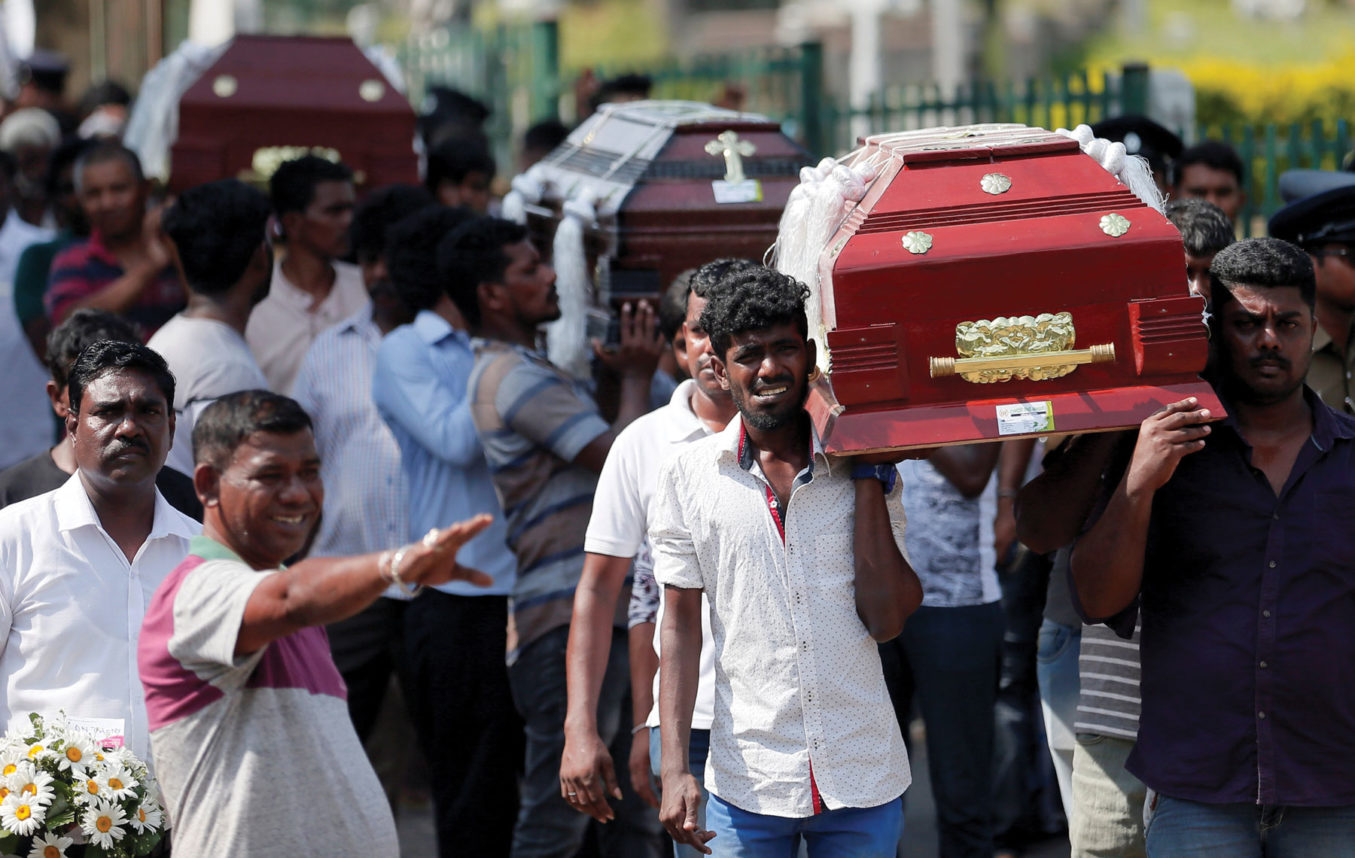
Every time terror strikes, a similar and logical drama unfolds. We express shock, outrage and revulsion at the level of human depravity, we grieve for the victims, we commit to fighting the evil of terrorism, and then we resolve to overcome the darkness of that evil with the light of human solidarity.
This is not just the right thing to do — it’s what we need to do.
When the terrorist act is motivated by religious belief, as was the case with the horrific massacres in Sri Lanka on Easter Sunday, we are careful not to offend the religion as we condemn the evil of the act. That is also the right thing to do.
By now, we know that the bombings of churches and hotels across Sri Lanka, which resulted in 321 dead (as of press time) and more than 500 wounded, were carried out, according to local authorities, by a radical Islamist group (and perhaps a second) with help from international militants.
It’s worth noting that reactions from across the Jewish and non-Jewish worlds generally avoided mentioning the religion of the alleged perpetrators.
“There is no silver bullet when you deal with religious radicals who are willing to kill and die in the name of their God. But at the very least, we owe it to all past and future victims to look for ways to disturb their souls.”
“We denounce this heinous outrage and appeal for zero tolerance of those who use terror to advance their objectives,” World Jewish Congress President Ronald Lauder said in a typical reaction.
“We are outraged by the horrific attacks on churches and hotels in Sri Lanka. … Such outrages cannot be tolerated in any civil society, and nobody should be forced to worship in fear. We hope that those who are responsible and those who aided and abetted them will be brought to justice,” Conference of Presidents of Major American Jewish Organizations Chairman Arthur Stark and Executive Vice Chairman Malcolm Hoenlein said in a statement.
Those statements could have applied to any terrorist act, regardless of motive.
It’s true that when the motive is fascism or racism or any motive not rooted in religion, we are less reluctant to condemn the ideology, as we saw with the recent attacks in Pittsburgh and New Zealand. But maybe because a disproportionate number of violent acts are committed in the name of Islam (including many against other Muslims), we are especially and justifiably sensitive not to paint all Muslims with that dark brush.
The question remains, however: Can we add something to our condemnation of religious terrorism that would deter such acts without offending a whole religion?
I realize there is no silver bullet when you deal with religious radicals who are willing to kill and die in the name of their God. But at the very least, we owe it to all past and future victims to look for ways to disturb their souls.
“Can we add something to our condemnation of religious terrorism that would deter such acts without offending a whole religion?”
One approach we have tried is to claim the terrorist has “hijacked” or “perverted” his religion. But because this is usually directed at the general public, it serves more to defend the image of the religion than to shame potential killers.
And let’s face it: Any fanatic who thinks he is doing God’s work by murdering innocent people — whether he is Christian, Buddhist, Jewish, Muslim or Hindu — deserves to be humiliated.
You can’t shame a religious killer with secular talk; the only language he’ll listen to is the language of faith. Religious leaders of all faiths must speak directly to their own fanatics and show them why they are sinners. The point is not to defend a religion with the public, but to shame and potentially even rehabilitate fanatics who harbor murderous beliefs.
As part of that process, we ought to consider different labels for religious killers. It’s not enough to use obvious labels like terrorist or extremist or hijacker of religion. That just feeds into their pathologies.
One label I heard recently that may have some merit in diminishing the fanatic is “half-believer.” A religious killer may be a believer, but he is incomplete. He has a long way to go before he can be a true believer. Because of his violent ways, not only is he not superior to others, he is inferior. That is pretty sobering.
I have no clue, of course, if any language can ever get the attention of a religious extremist who is drunk on certitude. Maybe the only real language is the blunt threat of physical violence or “bringing them to justice,” which must always be our primary options.
But what I do know is that every time a fanatic murders in the name of religion, all religions suffer. It’s up to each faith to take responsibility for their own fanatics. That wouldn’t necessarily eradicate terrorism, but it would help rehabilitate religion
No comments:
Post a Comment